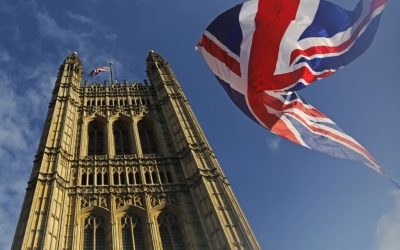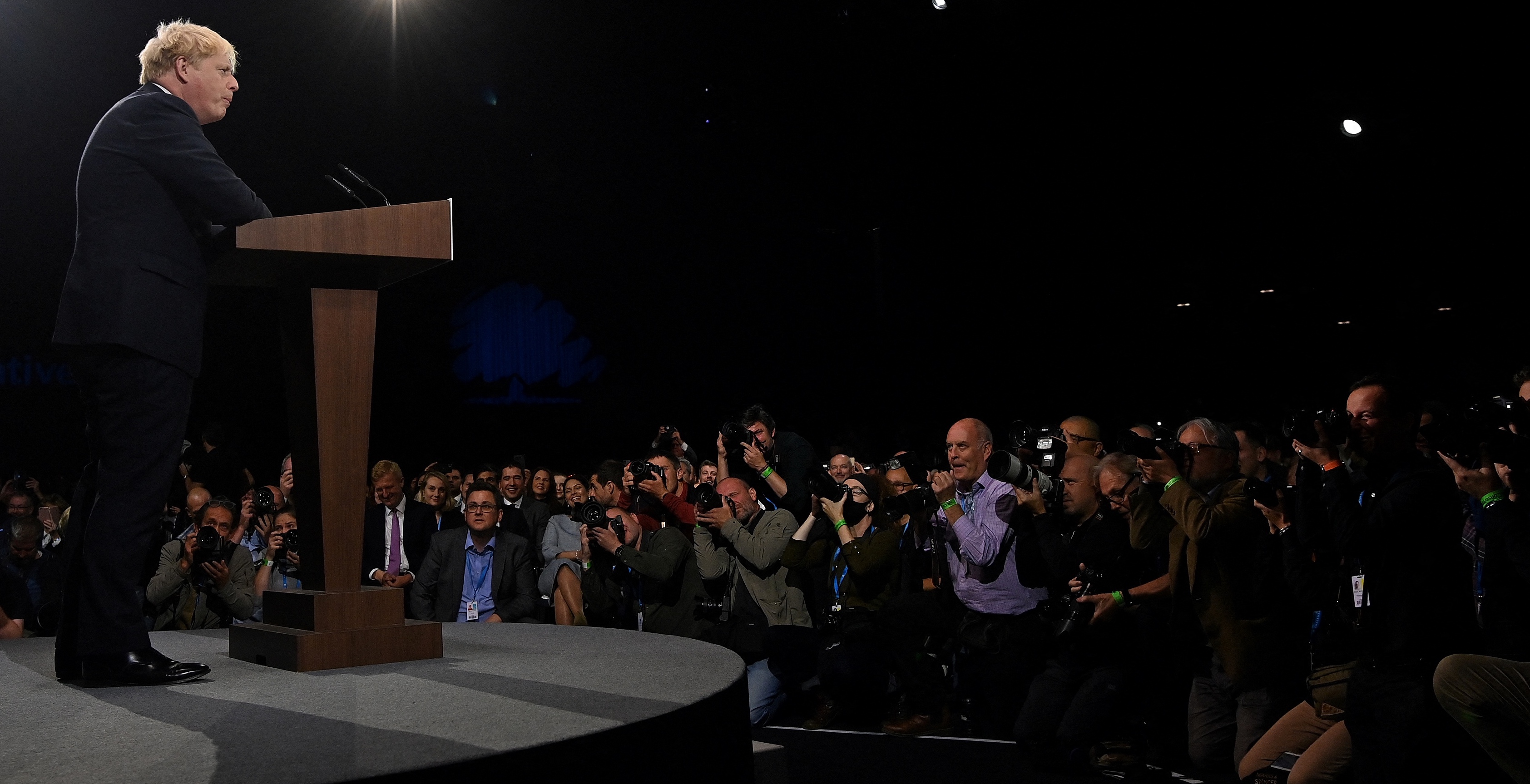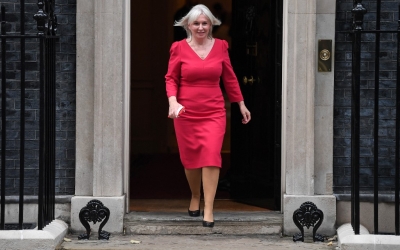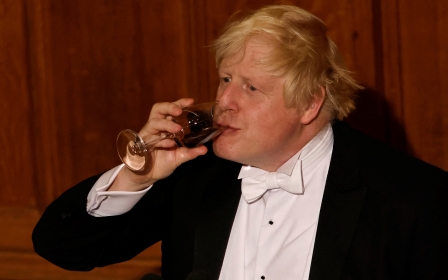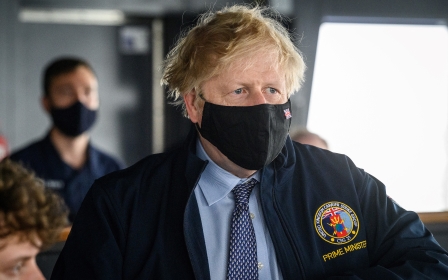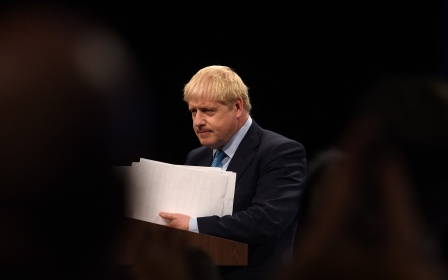I encouraged Nusrat Ghani to stand as a Tory MP. I wish I hadn't

Ten years ago, when I was chief political commentator of the Daily Telegraph and carried more weight in Conservative Party circles than today, I played a tiny role in encouraging Nusrat Ghani into parliament.
At a fund-raising event hosted by the current health secretary, Sajid Javid, she auctioned me off for lunch. I wasn’t just happy to help her raise funds. I was proud. The person I knew was hard-working and personable, with the talent to break into a Conservative cabinet. I was certain that the Conservative Party - and Britain - needed people like Ghani.
Ghani was, and remains, the polar opposite of the pampered, entitled, privately educated clique which surrounds Boris Johnson
Elected in 2015, she was, and remains, the polar opposite of the pampered, entitled, privately educated clique which surrounds Prime Minister Boris Johnson. Which may explain why Ghani was sacked from her ministerial position in the 2020 reshuffle. At the weekend, she revealed that the move was made because of her Muslim faith.
Ghani was born in Pakistan-administered Azad Kashmir, where her father, Ahmed, was a teacher. The family moved to Birmingham, where they lived on a council estate and young Nusrat attended state schools and, in due course, Birmingham City University and a job in the City. She then joined the BBC World Service, for whom she worked in Myanmar, Russia and Afghanistan.
'I don’t want to be pigeonholed'
I used to gently urge her to make rather more of her Muslim identity. Ghani firmly and reasonably made clear to me that she wanted to do things her own way, saying: "I don’t want to be pigeonholed as a Muslim or a female." Many political activists would criticise Ghani for this, but I am certain that she was not just entitled to go into politics on her own terms, but right to do so.
She has spoken only once on Palestine during her six and a half years in parliament, and only once, very briefly, on Kashmir.
Ghani has, however, been hugely energetic in a large number of important causes, including farming, age concern and human trafficking. More recently, she has been so strong on behalf of the oppressed Uighur minority in China's East Turkestan that she’s been sanctioned by Beijing. She’s been an outstanding constituency MP - and, until her career was cut short, an excellent minister.
Recently, she became a senior fellow at the Policy Exchange think tank. As an admirer of Nusrat Ghani, I was surprised. Though little known to the public, Policy Exchange has done more than any other organisation to frame official thinking about how Islam is perceived in the UK.
It once published a report by Munira Mirza - now head of Boris Johnson’s policy unit - which suggested that the idea Muslims in Britain faced discrimination was a “myth” and that use of the term Islamophobia was “a convenient way of closing down debate”.
In her capacity as senior fellow, Ghani wrote an article welcoming William Shawcross as reviewer of the troubled Prevent counter-terrorism strategy. Shawcross is not immune to the Islamophobia his one-time Policy Exchange colleague Munira Mirza regards as a myth.
He once told an American audience: “Europe and Islam is one of the greatest, most terrifying problems of our future. I think all European countries have vastly, very quickly growing Islamic populations.” Ghani even praised Shawcross’s record as chairman of the Charity Commission. During his chairmanship, the regulator faced complaints of institutional bias against Muslims. Both the commission and Shawcross denied this, and Ghani has accepted that denial.
Again, she’s entitled to do so. This brings me to my central point.
Nothing but loyal service
As a Conservative politician, Ghani has given nothing but loyal service to her constituents, her party, her country and the government. She has gone so far out of her way to present herself as a mainstream Tory politician that she has opened herself to the criticism of effacing her heritage as a Pakistani Muslim.
But this was not enough. This is why the case of Nusrat Ghani has so much to tell us about the modern Conservative Party.
The Ghani affair tells us that many Conservatives aren’t simply hostile to Muslims who support the Palestinian cause, make an issue of Kashmir, or celebrate their religion and their identity. It shows that too many of Johnson’s Conservatives dislike all Muslims, whatever their opinions and however "integrated" they are.
They even feel uneasy with Muslims who write for Policy Exchange and admire William Shawcross.
According to her own account, she was told that she was sacked as a minister because her “Muslim woman minister status was making colleagues feel uncomfortable”. The Conservative chief whip Mark Spencer denies such remarks were ever said. Probably there is no way we will ever know the truth.
The Nusrat Ghani I know would never fabricate such a conversation. And her account of events fits like a glove with the recent history of the Conservatives
But the Nusrat Ghani I have known for a decade would never fabricate such a conversation. And her account of events fits like a glove with the recent history of the Conservatives.
Ghani became a Tory MP in the 2015 general election. That means she was a Tory MP during Zac Goldsmith’s Islamophobic campaign for mayor of London in 2016, in which he attempted to win an election by stirring up sectarian division.
Goldsmith attacked his opponent Sadiq Khan less as a politician and more as a Muslim apologist for "extremists".
I assume Ghani will have been present at prime minister’s questions to hear then Prime Minister David Cameron abuse the despatch box by making entirely false allegations that Ghani’s near-namesake, the south London imam Suliman Gani, was a supporter of the Islamic State group.
Tory's 'Muslim problem'
Ghani was an MP when Andrea Leadsom, Jacob Rees-Mogg’s predecessor as leader of the Commons, called Islamophobia a matter for the Foreign Office. She will have been aware that the Tory backbencher Michael Fabricant, a Johnson loyalist who has gone on an offensive against her in recent days, talked about “Anglo-Muslim relations” within the UK.
I guess she’ll have had to cope with the naked Islamophobia of the broader Tory membership.
Many Tory MPs reflect the bigotry of the membership. I have written before for Middle East Eye about Bob Blackman, the MP for Harrow East who shared an anti-Muslim post by Stephen Yaxley-Lennon, commonly known as Tommy Robinson, the former leader of the English Defence League.
Ghani has to put up with him as a fellow officer on the backbench 1922 Committee. Think about that. And she was obliged to serve in the same government as Nadine Dorries, who also shared a tweet by Robinson, and is now culture secretary.
Worst of all, she’s had to work for Boris Johnson, who as prime minister and Tory leader has encouraged this culture of casual anti-Muslim bigotry.
According to TellMAMA, a national project which records and measures anti-Muslim incidents in the UK, there was a 375 percent spike in such incidents in the week after Johnson compared women who wear the niqab to “letterboxes” and “bank robbers” in a column for the Daily Telegraph.
There’s a reason why (though I stand to be corrected) I can only find four Muslims among the 359 Tory MPs in parliament: Saqib Bhatti; Rehman Chishti, the principled MP for Gillingham and Rainham; Imran Ahmad Khan, Tory MP for Wakefield, currently suspended and awaiting trial; and Ghani herself. Sajid Javid has a Muslim heritage but reportedly does not practice the faith.
That’s a shockingly low number. I could go on and on about the Conservative Party’s Muslim problem and have done in a series of articles for MEE. The Equality and Human Rights Commission's failure to investigate Tory Islamophobia continues to bemuse me. Johnson’s Conservative Party has become a moral cesspit for a number of reasons. Anti-Muslim bigotry is high among them.
Ten years ago, I was lucky enough to meet a public-spirited Muslim called Nusrat Ghani. I encouraged her to enter parliament as a Tory MP. If I could go back in time, I would warn her not to.
The views expressed in this article belong to the author and do not necessarily reflect the editorial policy of Middle East Eye.
Middle East Eye propose une couverture et une analyse indépendantes et incomparables du Moyen-Orient, de l’Afrique du Nord et d’autres régions du monde. Pour en savoir plus sur la reprise de ce contenu et les frais qui s’appliquent, veuillez remplir ce formulaire [en anglais]. Pour en savoir plus sur MEE, cliquez ici [en anglais].



